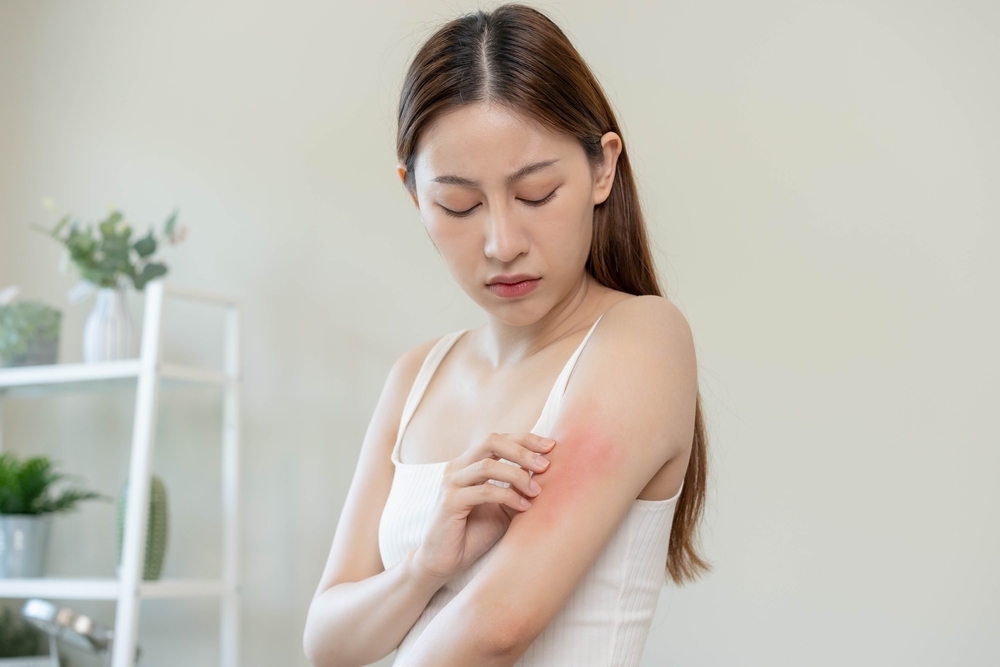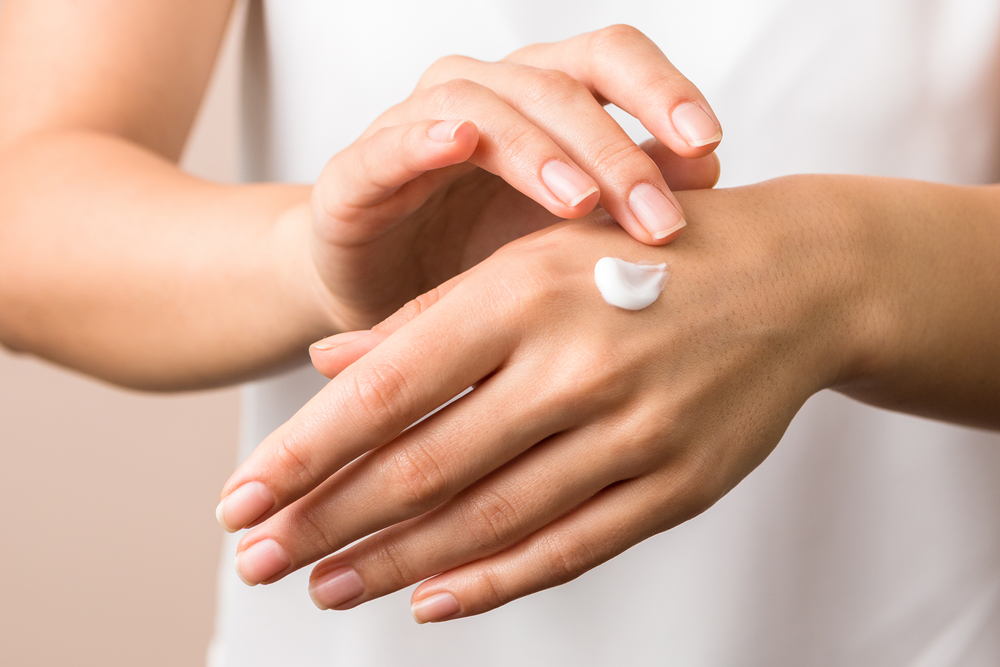Do you have thick, scaly patches on your skin? You may have psoriasis.
Psoriasis is a chronic skin condition that affects over 7 million Americans. It causes itchy patches and scales that can impact your physical appearance.
Psoriasis isn’t just skin deep. It can also affect your emotional well-being, self-confidence, and quality of life. Getting treatment can help address the visible symptoms of psoriasis and help you attain clearer, healthier skin.
Keep reading to learn more about psoriasis and four proven treatments for psoriasis management.
What Is Psoriasis?

Psoriasis is an autoimmune disorder that causes inflammation and skin cells to multiply faster than usual. Consequently, the skin builds up into scaly, bumpy patches. It also can affect the joints, presenting with arthritis, joint pain, stiffness, swollen fingers or toes, low back pain and tendon pain.
Psoriasis is a chronic condition that often cycles. It flares for several weeks or months and then subsides for some time.
The condition isn’t contagious.
What Are the Signs and Symptoms of Psoriasis?
The signs and symptoms of psoriasis in the skin often come and go over time. They also vary from person to person and may include:
- A raised area or thickened skin
- Thick, pitted, or ridged nails
- Dandruff-like scaling spots
- Dry, cracked skin that bleeds
- Itching, soreness, or burning
- Crust, plaques, or scales on the scalp
- Patches of thick skin with red or pink silvery-white scales
What Parts of the Body Does Psoriasis Affect?
Psoriasis can appear in the following areas:
- Face
- Scalp
- Genitals
- Torso
- • Skin folds (e.g. armpits, groin, under breasts)
- Palms and soles of feet
- Knees and elbows
- Fingernails and toenails
In most people, psoriasis tends to cover a small area of the skin. But in severe cases, the plaques connect, covering large sections of the body.
What Causes Psoriasis?
The cause of psoriasis is not fully understood. Experts believe it’s a combination of factors. Something triggers the immune system, which then leads to inflammation.
The inflammation causes new skin cells to grow too fast. Typically, skin cells are replaced after 10 to 30 days. However, with psoriasis, new cells form every 3 to 4 days.
The accumulation of old cells being replaced by new ones results in scales. Psoriasis can also run in families and often coexists with other autoimmune disorders.
What Are the Treatment Options for Psoriasis?
While psoriasis doesn’t have a cure, treatment can help manage the symptoms. “Effective psoriasis management often requires a multi-faceted approach. We now have several proven treatments that can significantly improve patients’ quality of life,” says Robert Greenberg, MD of Golden State Dermatology in Livermore and San Ramon.
Treatment options may include:
TOPICAL THERAPIES
These include:
Corticosteroids

Corticosteroids are used to treat psoriasis in most parts of the body. These medications penetrate the skin to reach the affected cells.
Corticosteroids are available as ointments, creams, solutions, gels, and foams. They control inflammation, which slows the hyperproduction of skin cells, reduces itching, and alleviates discomfort.
Additionally, corticosteroids minimize the appearance of skin lesions and aid in the shedding of scaly skin. Corticosteroids range from mild to very strong.
Mild corticosteroids are typically used on sensitive areas such as the face, breasts, armpits, and groin. You might need a strong corticosteroid if you have severe psoriasis. However, it should be applied on thick patches or small areas of the skin.
Overusing creams with strong corticosteroids for long periods can cause skin thinning.
Keratolytic Agents
Keratolytic agents are medications that dissolve scales and skin flakes. Removing scales improves the appearance of your skin and allows other topical medications to penetrate and go directly to the target tissues for better outcomes.
This is particularly useful on the scalp. Salicylic acid is a keratolytic agent that can help relieve the symptoms of psoriasis. It softens and thins scaly skin, reducing the symptoms and appearance of psoriasis.
Salicylic acid can also decrease the appearance and size of skin plaques. The topical treatment works by exfoliating the skin and removing the buildup of dead skin cells and flakes from plaques, revealing smoother skin.
Salicylic acid also has anti-inflammatory properties. Because psoriasis is an inflammatory skin condition, salicylic acid can help minimize other symptoms, such as redness and itchiness.
Salicylic acid can be used as a standalone treatment or in combination with other psoriasis treatments.
ZORYVE
ZORYVE is used to improve inflammation and the symptoms of plaque psoriasis, including itching. The FDA-approved cream is effective in the treatment of inverse or intertriginous psoriasis (e.g. armpits, groin, under breasts).
VTAMA
VTAMA is a prescription medication used to treat mild to severe plaque psoriasis. It can be applied on sensitive areas of the body, such as skin folds, the face, and the neck.
VTAMA works by minimizing inflammation and decreasing the rate at which the body creates new skin cells, reducing the symptoms of psoriasis, like scaly patches of skin.
ORAL THERAPY
Oral therapy, in the form of pills, such as weekly methotrexate, acitretin, apremilast (Otezla), and deucravacitinib (Sotyktu) treats moderate to severe plaque psoriasis. These FDA-approved medications help reduce inflammation and clear psoriasis. Other oral agents have been approved specifically for psoriatic arthritis, such as Upadacitinib (Rinvoq).
PHOTOTHERAPY
Also called light therapy, phototherapy can help resolve cutaneous psoriasis. It reduces skin inflammation and slows down the overgrowth of skin cells. It does not have an effect on psoriatic arthritis.
Your dermatologist at Duncan Dermatology may suggest light therapy if you have moderate to severe psoriasis that doesn’t respond to other treatments. Phototherapy can be combined with a prescription cream.
The various types of phototherapy include:
- Laser UVB
- Oral PUVA
- Topical PUVA
- Pulsed dye laser
- Broadband UVB
- Narrowband UVB
BIOLOGIC AGENTS
If you have moderate to severe psoriasis and/or psoriatic arthritis, and other treatments have failed, your dermatologist may recommend one of several FDA-approved biologic agents, which are given as injections. Biologics don’t just relieve the symptoms of psoriasis.
Instead, they fight the root cause of psoriasis by blocking specific proteins or cells in the immune system that contribute to psoriasis. In turn, this reduces inflammation and alleviates your symptoms.
Get Your Psoriasis Under Control

If you’re struggling with psoriasis, Duncan Dermatology offers best-in-class treatment to control it and relieve its debilitating symptoms.
“While psoriasis is a chronic condition, many patients improve significantly with the right treatment plan. It’s important to work closely with your dermatologist to find the most effective combination of therapies for your case,” says Dr. Greenberg.
Are you looking for effective psoriasis treatment? Call us to book your appointment at 707.967.0800.



